Apec: A family feud with no end in sight
- Published
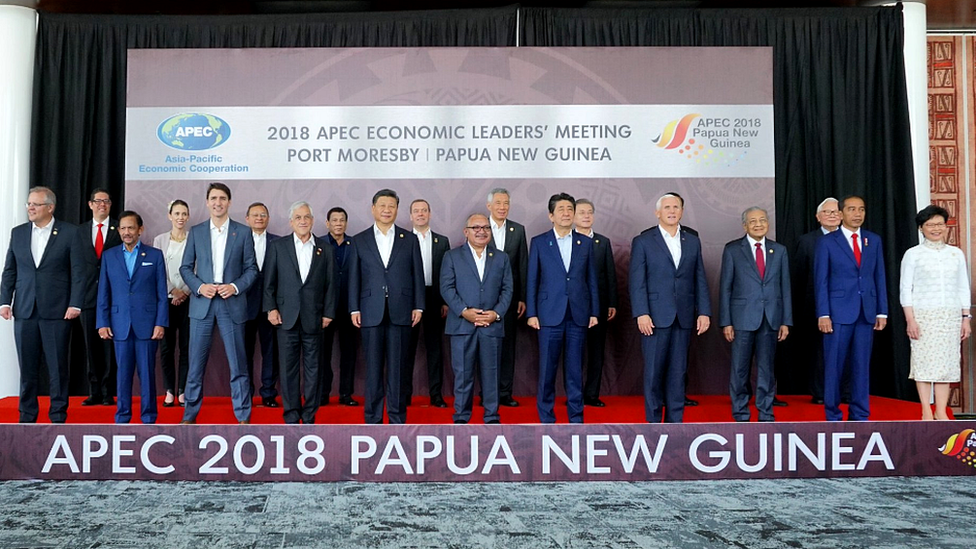
Say cheese: 21 members of the Asia-Pacific Economic Cooperation pose for the camera
The annual Asia-Pacific Economic Cooperation (Apec) summit usually ends with a joint communiqué, and a family photo.
These summits are typically highly choreographed, orchestrated events. You don't normally get many surprises.
This year, Apec still got its family photo - but also a family feud, of sorts.
While everyone smiled for the cameras, a bitter battle for influence and power broke out among the world's two superpowers, who have increasingly become the world's greatest rivals.
Different visions
The first inkling the media had of something not going to plan was when the Canadian Prime Minister Justin Trudeau strode out onto the stage and announced to the eagerly awaiting journalists that this year there would be no joint communiqué.
"I don't think it will come as a huge surprise that there are different visions on particular elements regarding trade," he said. "Those prevented there being a consensus on the communiqué document, so there will be a chair statement."
Those different visions?
No prizes for guessing whose they are.
The US and China's differences on trade is what led to this impasse.
This is the first time in more than two decades that the 21 members have failed to reach an agreement at the end of their meetings.
Think about that for a moment.
The squabble between the world's two most powerful countries is what has stopped the international community from deciding on some of the most important trade and economic issues of our time.
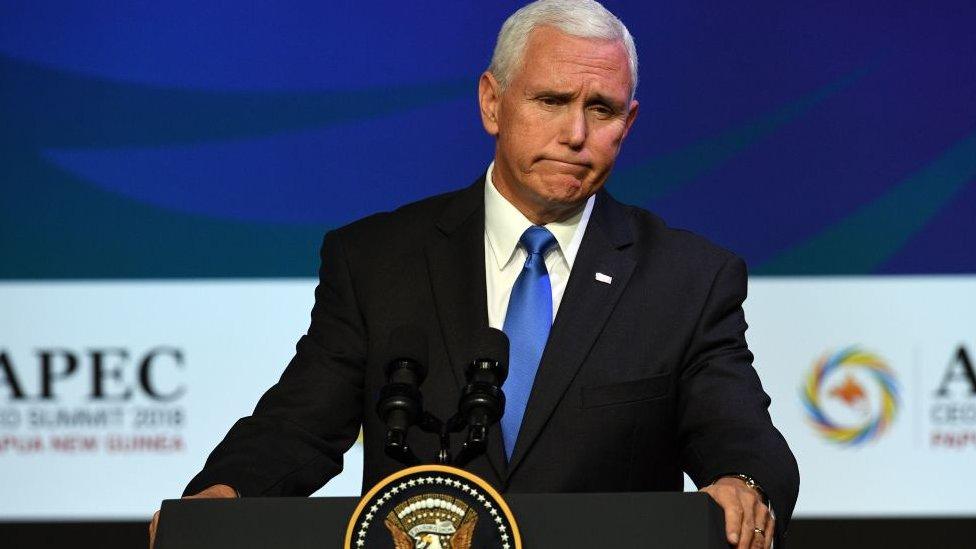
US Vice President Mike Pence attended the Apec summit
It's not entirely clear precisely what the two disagreed on, but reports had emerged before the leaders meetings today that indicated there was already trouble between Washington and Beijing, in particular, over their definitions of free and fair trade and how to regulate and categorise the activities of state-owned enterprises when they invest in different countries.
The US sees China's state-owned companies as an extension of the government, which it says unfairly protects domestic firms at the expense of American companies. The US also says China uses the Belt and Road programme as a way to ensnare other countries into a "debt-trap".
Beijing says that's not true, and many in the country believe that Washington is actively trying to contain it from becoming too powerful by curtailing the rise of its companies.
Those tensions between the two spilled over into the Apec arena, but host Papua New Guinea (PNG) tried to play all of this down.
Still, it was PNG that benefited the most out of the summit.
Caught in the middle of the US-China battle for influence in the region, it received a new naval base to be redeveloped by the US and Australia, and a US$1.7bn investment into electricity infrastructure that America will also help build in the impoverished country.
All of this to counter China's influence in the region, which as I've written about before is growing rapidly.
Paulius Konmil spent three years studying in China before returning to PNG
The US President and China's President Xi Jinping are expected to meet later this month, and the failure at APEC has raised the stakes for the two men to come to some sort of deal on the US-China trade war.
But this spat between the globe's two superpowers is unlikely to end soon. It is fast turning into the world's most volatile relationship - with dangerous ramifications for the rest of us.
- Published18 November 2018
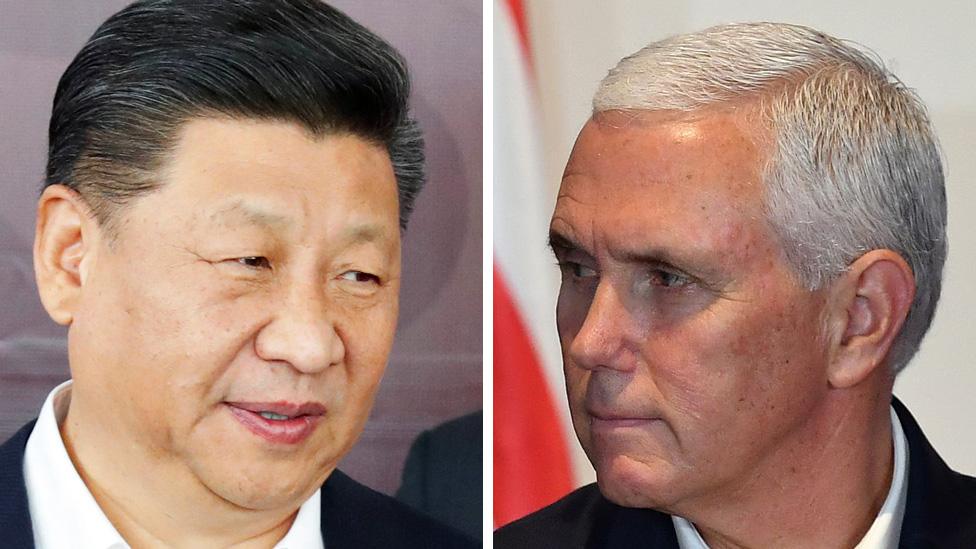
- Published15 November 2018
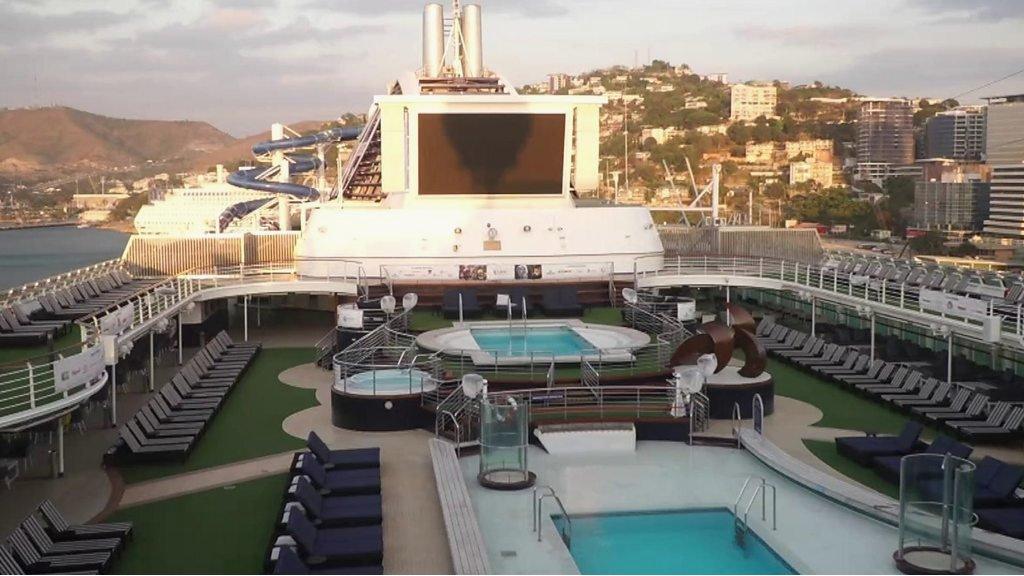
- Published8 November 2018
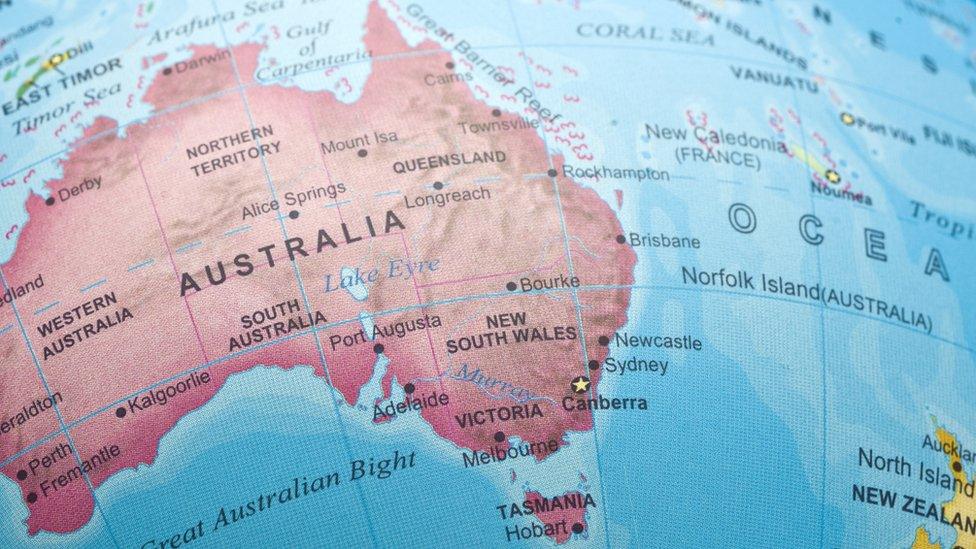
- Published26 October 2018
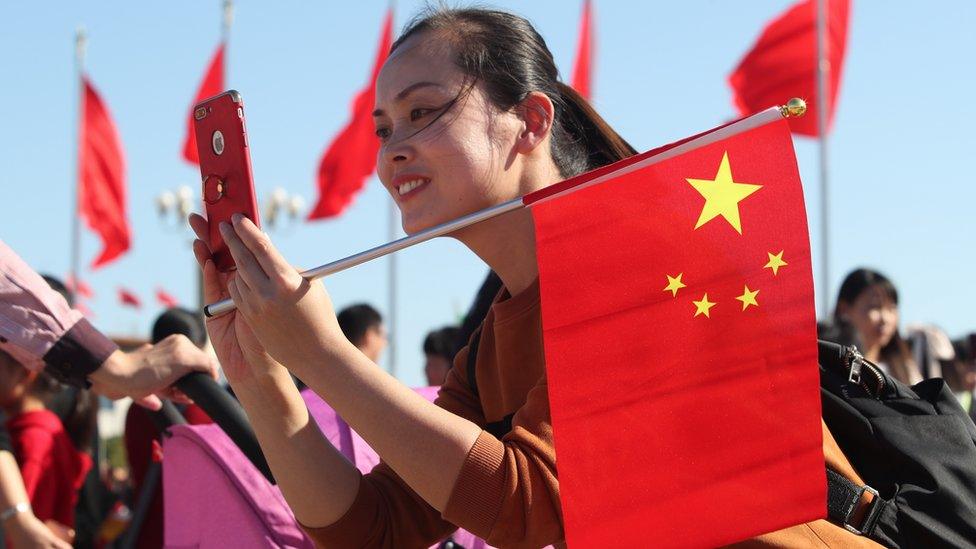
- Published22 October 2018